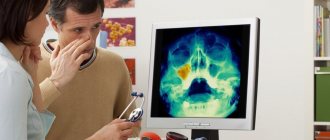Any competent doctor will tell you that you need to control your psycho-emotional state; if you can’t do it yourself, you can even be prescribed medications. Why is this so important? When stressed, the hormone cortisol is released. It affects the functioning of all body systems. Because of this, the functioning of the cardiovascular and nervous systems is disrupted, which can lead to deterioration in well-being, sleep problems, and problems with the gastrointestinal tract.
People who know how to cope with stress and avoid conflict situations tend to lead fulfilling lives. They have enough energy for work, friends and hobbies. Mentally balanced people have happy families, give birth to healthy children and raise them to be just as psychologically balanced.
The impact of stress on human health
Scientists have proven that the body of people who are constantly exposed to stress wears out 40% faster than those of those people who live in peace. Frequent stressful situations cause the following symptoms:
- Redness of the skin, various rashes;
- Feeling tired and exhausted even after a full sleep;
- Loss or gain of body weight;
- Constant feeling of anxiety;
- Tremor (shaking) of the limbs;
- Stool disorder.
If you do nothing, there is a high chance of developing the following pathological processes:
- Panic attacks;
- Depression;
- Heart failure;
- Stomach ulcer;
- Hypertension;
- Anorexia;
- Stress can also cause a decrease in sex drive in both women and men.
Manifestations of stress
People who experience stress from overwork may notice some of the following signs:
- anxiety or panic
- feeling of constant pressure, weakness, sadness, depression
- irritability, moodiness, tearfulness
- physical symptoms: such as stomach problems, headaches and even chest pains
- allergic reactions such as eczema and asthma
- sleep problems
- increased consumption of alcohol, tobacco, overeating
Everyone experiences stress a little differently. Some people become angry or aggressive and often involve others in their stress or take it out on others. For others, it may manifest as an eating disorder or develop substance abuse problems (such as alcohol or drugs). Those people who have chronic illnesses may find that the symptoms of their illness flare up with renewed vigor under an overload of stress.
Sleep as the basis for well-being
Adequate rest and healthy sleep are the first rules of a stable psyche. A well-rested person is more resistant to stress. The norm is considered to be 7-8 hours of sleep (and at least 9 hours if a person trains hard or works on his feet).
If there is not enough sleep, the stability of the nervous system decreases. You've probably observed how small children become capricious when they are tired and want to sleep. A similar condition is observed in adults who regularly do not get enough sleep - it becomes difficult for them to control their emotions, they feel irritation and aggression.
To improve the quality of your sleep, be sure to create a comfortable sleeping environment in your bedroom - darken the room, ventilate it before bed, and try to make the room quiet. Maintain a sleep schedule - try to go to bed and wake up at approximately the same time every day and not deviate too much from this schedule, even on weekends. If these measures do not help, contact a neurologist or somnologist. Your doctor will help you improve your sleep and quality of night's rest.
How stress is formed
Stress is the feeling of how our body reacts to some difficult events in our lives. This is the body’s way of responding to external adverse influences. The body prepares to face a difficult situation by increasing strength, endurance and alertness. Events that provoke stress are called stressful situations or high psychophysical stress; they cover a whole range of situations, ranging from direct physical danger to the most difficult life issues related to study, work or interpersonal contacts. The human body responds to stress by activating the nervous and hormonal systems. The hypothalamus signals the adrenal glands to produce more of the hormones adrenaline and cortisol and release them into the bloodstream. These hormones speed up your heart rate, breathing rate, blood pressure and metabolism. Blood vessels open wider to increase blood flow to large muscle groups, preparing our muscles for combat readiness. The pupils dilate to improve vision. The liver releases stored glucose to increase the body's energy. And sweat is produced to cool the body. All these physical changes prepare the human body to react quickly and effectively to cope with negative impacts. This natural reaction of the body is known as the stress response.
Stress reaction
Stress reactions are important during acute, emergency situations, such as when a driver must slam on the brakes to avoid an accident, to defeat a penalty and win a game, a final exam. Once this situation passes the nervous system quickly returns to its normal state, and will be ready to respond again when needed.
However, stress reactions may not always last for a short time. Current or long-term events, such as divorce or moving to a new area or school, can also cause stress. The reaction to stress can often cause health problems, especially when the negative impact lasts for a long time, a breakdown may occur in the form of a failure of higher nervous activity. In such situations, treatment of stress or post-stress complications is necessary.
Meditation and psychotherapy, their impact on health
Meditation is a great way to cope with depression and stress without medication.
The effect of meditation on the body is:
- Improving brain function. It has been scientifically proven that a course of meditation helps restore brain cells;
- Reducing the risk of developing heart disease;
- Eliminate feelings of anxiety;
- Developing mental resistance to stress;
- Increasing immunity and strengthening the body's defenses.
Scientists from Washington conducted an interesting study. 15 colleagues from one enterprise voluntarily took part in it. Before the rehabilitation course, each of the volunteers underwent a stress resistance test. It turned out that 14 out of 15 workers live in constant stress and cannot effectively cope with nerve-wracking situations.
The workers completed an eight-week meditation course under the supervision of a specialist - and a repeat test showed that the workers became much calmer and learned to control their emotions. Psychotherapy also shows good results - it helps solve problems and combat anxiety.
Factors contributing to stress
There are factors that influence the occurrence of stress in the workplace:
- long or overtime work;
- working during breaks or working from home;
- shift work;
- lack of time, working too hard or too fast, or unrealistic goals;
- limited control over how you do your work;
- lack of sufficient support from supervisors, managers and/or colleagues;
- lack of confidence in the workplace;
- high mental demands, work that requires making responsible decisions;
- lack of understanding of one's responsibility;
- conflict with colleagues or managers;
- intimidation;
- low level of recognition and reward;
- emotional burnout;
- lack of justice;
- discrimination based on gender, ethnicity, race or sexuality.
How to learn to control your psycho-emotional state?
How to maintain health and increase stress resistance?
- Don't take on several things at once. Complete every task you start without being distracted by extraneous factors. If your job does not allow you to do only one thing, make a schedule for the priority of tasks and, in the time allocated for a task, do only it.
- If you are nervous about a situation, ask yourself if there is something you can do. If not, then you need to come to terms with the fact that this situation and its result are beyond your control and try to distract yourself with something else. If you can, no need to worry, just do it.
- Try to develop independent self-esteem. Of course, listening to a negative assessment and scolding is unpleasant - but, if you think about it, this assessment has nothing to do with you. This is just the opinion of another person, which can be taken into account if the person is important to you, but should not be taken as an objective reality. Evaluate yourself.
- Set realistic goals for yourself. Not the easiest, but achievable. When determining the deadline for completing a task, reserve 15-20% of the time for force majeure situations and the human factor, then delays will not unsettle you.
- Light physical activity helps stabilize the psycho-emotional state - nothing calms you down like a light jog or swimming.
- Go to bed no later than 11 pm, try to sleep at least 8 hours.
- Organize your workplace in such a way that it is pleasant to be there and easy to find everything you need.
- Eat the right foods. For the stability of your psycho-emotional state, it is very important to eat a balanced diet. B vitamins are especially important.
- At least once a week, do something that makes you happy. Meet with friends, dance, eat delicious food, play computer or board games.
If nothing helps, and you feel that it is difficult for you to cope with stress on your own, contact a specialist; you may have depression. In this case, you need qualified treatment.
Why you need to treat stress
Long-term stressful situations can cause lasting changes in people with low levels of stress tolerance. The nervous system is under constant pressure and can remain constantly active, which stimulates the continued production of additional portions of stress hormones over a long period. This depletes the body's reserves, causing a person to feel overworked and weak. The body's immune system is weakened, and other problems arise associated with the depletion of various biological reserves.
Stress often causes the formation of various mental disorders.
The most common cases of development of such disorders are:
- Depression
- Anxiety states
- Psychosomatic disorders
- Neuroses
- Chronic fatigue syndrome
- Other pathological mental states.
Despite the fact that stress reactions have important biologically justified changes in the body, overload stress is completely different. Too much stress is not good for the entire human body. For example, a small stress test - short-term stress leads to motivation to study, and a person learns the material more easily. But prolonged stress throughout the probationary period can create significant difficulty concentrating on the material you need to learn.
Stress treatment is necessary
Pressure that is too intense or too long can cause people to feel stressed overload. Here are some of the basic situations that can overwhelm the body's ability
cope with stress independently if it continues for a long time:
- intimidation or direct exposure to violence or physical harm
- conflicts in the family, difficult emotions that may be accompanied by grief
- difficulties associated with learning disabilities
- lack of time for proper rest
Some stressful situations can be extreme and require special attention and treatment for stress and its complications. For example, post-traumatic stress disorder is a very severe reaction that can develop in people who have experienced an extremely traumatic event, such as a serious car accident, natural disaster, terrorist attack, rape, etc.
Some people may have neurodevelopmental characteristics that may cause them to overreact to stress, even when faced with minor challenges. If a person often feels tense, upset, anxious, or experiences stress, this may be a sign of anxiety and a reason to seek help from a professional counselor to overcome it.
Professional stress: theory and practice
What is occupational stress? The Internet Answers: It is job stress that occurs when a situation exceeds the employee's emotional or physical capabilities. The questions remain “who is to blame” and “what to do” when the possibilities are exceeded, but work must be done. Our expert is Elena Poteryayeva, Doctor of Medical Sciences, Professor, Honored. Doctor of the Russian Federation, Vice-Rector of NSMU, Ch. specialist in occupational diseases of the Ministry of Health of the Novosibirsk region and the Siberian Federal District.
– Elena Leonidovna, what is professional stress? Was your boss rude? They didn't let you go on vacation? They didn't give you a prize? Something else?
– The definitions on the Internet did not deceive you. Occupational stress is work-related stress. The very concept of stress is multifaceted, and is defined by the classics of medicine as “an extreme response of the body to influencing environmental factors.” Any profession, regardless of its nature and content, is associated with the influence of external factors.
– Does any profession create stress?
- Yes. Only profession and profession are different, and the influencing factors in different professional groups, say, mental and physical labor, are completely different.
The profession of mental work, associated with the need to analyze information and make decisions, causes stress from overstrain of mental activity, as well as emotional stress from insufficient time to complete certain tasks, and so on. In fact, these professional factors require the mobilization of the body’s forces, and stress is a physiological response to such a situation.
A person produces stress hormones, which are responsible for mobilizing all internal resources and reserves of the body. For example, adrenal hormones, cortisol and adrenaline.
– How does this reaction manifest itself? Getting a second wind?
– It manifests itself in different ways. A person may develop unprecedented running abilities if he needs to escape from danger. Some animals freeze when exposed to an external threat, and this is also a stress-induced reaction of the body. All living beings are subject to stress. If stress causes overexcitation, then inhibition of all reactions and apathy may occur. Stress in knowledge workers is often associated with the need to complete a task in a short time. It requires the mobilization of all cognitive capabilities of the body: memory, attention, analytical function. The time spent at work increases. Relationships in the team are strained.
A person does not follow the golden rule of “three eights”: eight hours for sleep, eight for work and the same amount for rest.
– And if you sit in an office at a computer for 8 hours, isn’t that a cause of stress?
– Yes, there is also stress caused by physical inactivity. Office workers often have to spend time immobile, in a forced working position, and here physical stress is added to the cognitive-emotional stress. The musculoskeletal system lacks blood supply, and nervous trophism suffers.
– So, in addition to emotional and cognitive stress, mental workers, just like those who work physically, also experience stress associated with muscle fatigue? Why is he dangerous?
– Long-term exposure to a stress factor - this can be, in addition to those already mentioned, harmful production factors, leads to tension in adaptation mechanisms, which should provide a new level of metabolic processes, for example, enhanced removal of toxins from the body. As exposure continues, stress becomes chronic. The body's reserves, in particular the endocrine system, are depleted, and the production of hormones decreases. And the person goes into a state of distress, and this is the first stage in the formation of the disease. In the situation we are describing, professional factors can influence the development of such serious diseases as coronary heart disease or hypertension, diabetes mellitus, and so on.
– So is stress physiological or harmful?
– Stress is an adaptive reaction of the body. Thanks to stress, a person survives in extreme situations. But this is acute stress. And what we are talking about is in the nature of chronic stress. And it leads to negative health consequences.
You may ask, is work always associated with occupational stress? Always. But it is necessary to distinguish between the state of effective and ineffective adaptation. When we talk about professional stress, we mean ineffective adaptation: a person exhausts the body’s resources and becomes ill.
– Under the same working conditions, someone gets sick, and someone rests - and everything is fine. Is it genetics?
– Genetics determines the level of adaptive processes. If a person did not have an individual risk due to his “genetic predisposition,” then we would improve working conditions to a certain level and guarantee the absence of diseases. This, unfortunately, does not happen. For example, we diagnose up to 6–7% of occupational diseases under acceptable working conditions. This suggests that, in addition to occupational ones, there are individual risks of diseases. The Novosibirsk School of Occupational Medicine is famous for assessing the risks of workers based not only on external influences, but also on the individual state of the body.
– And what should those whose genetics let us down?
– I’ll be banal. The most important thing is to give the body the opportunity to restore the level of homeostasis, that is, to maintain optimal vital functions, which will allow it to move into a state of effective adaptation. In other words, give the body a chance to restore impaired regulation in order to return to work factors without compromising its health. Full sleep. Adequate rest outside the workplace, prevention of overwork, especially important for people in professions involving concentration and other cognitive functions, as we have already discussed. And, of course, this is another vacation. If a person experiences hypodynamic stress, then it is better to move during moments of rest, etc.
– There are professions where stress is not an exception, but an integral part of the working day. Are people in these professions doomed to distress and illness?
– Yes, there are professions of particularly high stress, where activities are associated with high responsibility. For example, transport dispatchers, and we know that sometimes accidents occur due to their fault. Doctors, especially surgeons and resuscitators. Teachers cannot protect themselves from psycho-emotional stress. The Labor Code of the Russian Federation provides for certain compensation in the form of long vacations, early retirement, additional nutrition and other measures that reduce the level of occupational stress and the adverse impact of harmful occupational factors on the employee.
– The risk from the consequences of occupational stress for workers in such professions is double-edged. You yourself said about the air traffic controller. There are known cases with both pilots and teachers...
– Persons in such professions, on which the lives and fate of other people depend, have a system of professional selection; when they start working, they undergo a medical examination almost every year. Regulations for access to harmful and dangerous occupational factors and types of work are determined by Order of the Ministry of Health of the Russian Federation No. 302. This protects us from the possible inadequate state of the driver or air traffic controller and protects his own health. If a person shows signs of a disease that has a risk of developing if the harmful factor continues to act, he is removed from the profession.
– And does he get a job?
– If possible. The employer can offer him another, safe workplace. But he can simply dismiss him for medical reasons in accordance with the Labor Code on completely legal grounds, if there is no other workplace at his enterprise. A person is forced to look for a completely different job. He joins the labor exchange or retrains for another specialty.
– In this situation, the law protects us. Is the fate of the unfit person in his own hands? Who else should undergo regular medical examinations, except for workers in harmful and dangerous working conditions?
– Many categories. Civil servants, children, athletes. Their examinations are regulated by departmental documents and orders of the Ministry of Health. Medical examinations are aimed at preventing the development of the disease or identifying it at an early stage.
According to the Labor Code, the employer, regardless of the form of ownership of the enterprise, is obliged to provide its employees with an examination for professional selection upon hiring, as well as regular medical examinations in the course of their professional activities. Including for the purpose of identifying and preventing professional stress.
– Is it controlled?
- Yes. State Labor Inspectorate, Rospotrebnadzor, State Traffic Safety Inspectorate, and finally. Control is provided. But how it is done is the question. A third of workplaces in Russia do not meet hygiene standards. And in some cases, such conditions are required by production processes. But in others, the employer can improve working conditions and reduce work stress - at his own expense, that is, act as a philanthropist. Even if recommendations for improving working conditions are included in the next inspection report of the enterprise by Rospotrebnadzor, it is easier and cheaper for the employer to get by with a modest fine than to constantly invest in improving working conditions and caring for the health of workers. We can only rely on the social responsibility of business.
– What should employees do in such a situation?
– Of course, in these conditions it is important to take care of your health yourself. Our mentality, unfortunately, is not conducive to this. Here is one example. Two crane operators were diagnosed with vibration disease. But one of them also lost her hearing because she did not protect her hearing organ with antiphon headphones during work!
A healthy lifestyle increases stress resistance, including at work. In foreign countries, health insurance is more expensive for those who, for example, smoke or are overweight. And in our country, unfortunately, the following opinion and attitude towards one’s own health is widespread: “I pay taxes, including for healthcare. So, dear doctors, please restore me to health, like in my youth.” The awareness that without your own efforts you cannot maintain or regain your health is often absent.








